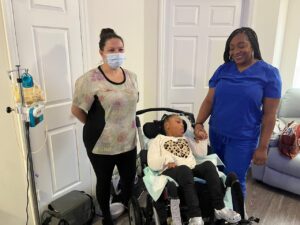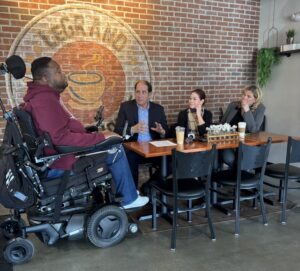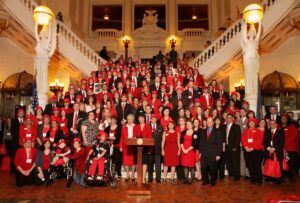BAYADA’s Government Affairs Office (GAO) staff continue to push forward on our goals in our major states and in Washington, DC. We’ve worked hard to leverage our staff, clients’ and families’ voices to elected officials and legislative leaders, and we are excited to keep moving ahead for Medicaid rate increases, better policies, and more staff and client engagement throughout 2019. Below, read about our recent accomplishments and upcoming goals.
Federal

2018 Major Accomplishment – In 2018, BAYADA’s Government Affairs Office expanded resources to support federal affairs and home health. We recently rejoined the National Association for Homecare & Hospice (NAHC) and expanded our involvement in national associations. We also have increased our advocacy efforts in Washington D.C. as David Totaro and Lindsey Wright are now registered as federal lobbyists and continue to meet with legislators on Capitol Hill.
2019 Major Goal – At the federal level, our major goal is to pass legislation that counteracts the Patient Driven Groupings Model (PDGM). PDGM is the new Home Health Prospective Payment System CMS finalized on October 31, 2018. While PDGM has some positive effects on the home care industry, we seek to counteract the portion of the rule that will decrease Medicare payments to home health providers by 6.42% based on the use of “behavioral assumptions” beginning January 2020.
Impact: Successful passage of one of the three bills (H.R. 6932/S. 3458; S.3545) that have been introduced into Congress would counteract the “behavioral assumptions” by requiring Medicare to implement adjustments to reimbursement rates only after improper behavioral actions by home health agencies are actually observed affecting Medicare spending rather than assuming those improper activities will occur. Successful passage of any of these bills as currently written would ensure greater stability in the new payment model, thus ensuring the sustainability of BAYADA’s Home Health offices and ensuring that Medicare clients would not see a disruption or cancellation in services.
Delaware
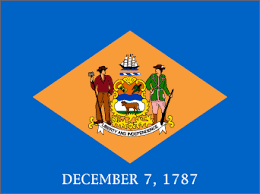
2018 Major Accomplishment – In Delaware, we were successful in building the momentum necessary to bring home a rate increase in 2019. GAO engaged office and field staff in advocacy and saw seven BAYADA employees provide testimony to the Joint Finance Committee. We also educated legislators in both chambers including committee chairs and leadership in both Chambers.
2019 Major Goal – Our major goal in Delaware is to increase Medicaid Reimbursement for RNs and LPNs by 21.4%.
Impact: Delaware clients currently see 6.8% of prescribed hours go unserved and another 7.5% of hours where the nurse is working overtime, both up from the year before. We anticipate that this increase will enable BAYADA and other providers to recruit and retain the skilled nurses needed to meet the demand and fill the gaps needed to remedy both the missed shift rate and the overtime hours served.
Georgia
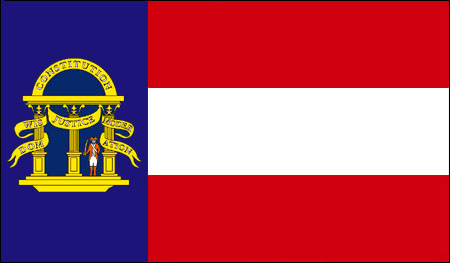
2018 Major Accomplishment – 2018 was the first year that Georgia saw a full-time GAO presence. Our advocacy efforts secured us a more than 6% rate increase for private duty nursing (PDN) services under the Georgia Pediatric Program (GAPP) waiver.
Impact: The PDN rate hike increased reimbursement rates for RN services by 6.3% and for LPN services by 6.5%, effective July 2018. This increase allows BAYADA to recruit and retain the nurses necessary to provide Georgians across the state with the services they need to remain at home with their families.
2019 Major Goal – In 2019, our major goal in Georgia is to build upon our 2018 accomplishment and add $3 to both the RN and LPN reimbursement rate for private duty nursing (PDN) services under the Georgia Pediatric Program (GAPP) waiver.
Impact: This increase would allow BAYADA to better recruit and retain the skilled nurses that we need to keep up with the demand in Georgia.
Maryland
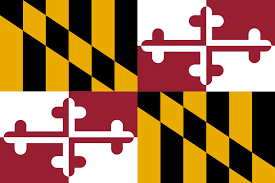
2018 Major Accomplishment – In Maryland, we successfully passed legislation to mandate a Governor-appointed task force charged with looking into Maryland families’ access to home health care. At the behest of the task force, the Maryland Department of Health revealed data showing that on average, 17% of prescribed skilled home nursing hours go unserved.
Impact: The successful creation of this task force and the revealed data were the first steps we needed to accomplish before we could begin to advocate for our 2019 goal: Increasing reimbursement rates for LPN skilled nursing services by 24.6%. If achieved, BAYADA would be able to deliver pediatric skilled nursing services to the many families in Maryland that are currently struggling to access the care they are authorized for.
2019 Major Goal – Increase Medicaid LPN rate a further 24.6%.
Impact: If achieved, this rate increase would open the market to enable BAYADA to deliver pediatric skilled nursing services to the many families in Maryland that are currently struggling to access the care they are authorized for. We anticipate that this increase will enable BAYADA and other providers to recruit and retain the LPNs needed to meet the demand, and that the 17% missed shift rate would decrease as families access more of the hours they need.
New Jersey

2018 Major Accomplishment 1 – In New Jersey, we were able to secure a 9% rate increase for the state’s personal care assistance (PCA) program. Additionally, our advocacy efforts resulted in a “rate floor” bill, which ensures MCOs cannot reimburse providers at a lower rate than mandated by the state.
Impact: This increase ensures that BAYADA can continue to serve current clients without fear of disruption by MCOs’ varied reimbursement practices and better ensures the sustainability of the state’s PCA program. A sustainable program will allow BAYADA offices to take on new clients, thus enabling more families across the state to access the personal care services they deserve.
2018 Major Accomplishment 2 – Our advocacy efforts resulted in the passage of the “Parking Placard Bill,” which will allow nurses, therapists and aides to park on restricted street parking, municipal lots and overtime at meters to render home care when it is implemented in April 2020.
2019 Major Goal – In 2019, our major goal in New Jersey is to increase the Private Duty Nursing (PDN) fee-for-service rate for both RNs and LPNs by $10 per hour.
Impact: If achieved, this increase will allow BAYADA to compete for a larger share of the state’s RNs and LPNs that are currently attracted to hospital and institutional settings where wages tend to be higher. As we gain the proper number of nurses to meet the demand, we will also likely see a decrease in missed shifts.
New York

2019 Major Goal 1 – In New York, our goal is to achieve the “Approved Vendor” status from the New York City Department of Education (NYC DOE). This will enable BAYADA to provide pediatric nursing services in the New York City schools.
Impact: If BAYADA achieves approved vendor status, we will be able to provide in-school care to children whose parents would like a BAYADA nurse to accompany their child to school but currently cannot do so. The ability for BAYADA nurses to work with a child at home and at school is critical to providing continuity of care for medically fragile children and their families.
2019 Major Goal 2 – Our second major goal is to pass legislation to increase New York’s Medicaid fee-for-service private duty nursing (PDN) reimbursement rates by at least $20 per hour.
Impact: If we succeed in generating an increase to the PDN fee-for-service rate, BAYADA will be better able to recruit and retain the high-quality nurses needed to provide skilled care for medically fragile individuals in New York. Increases will ensure that home care providers can adequately compete with other settings and surrounding states and Medicaid beneficiaries can continue to access home care services.
North Carolina
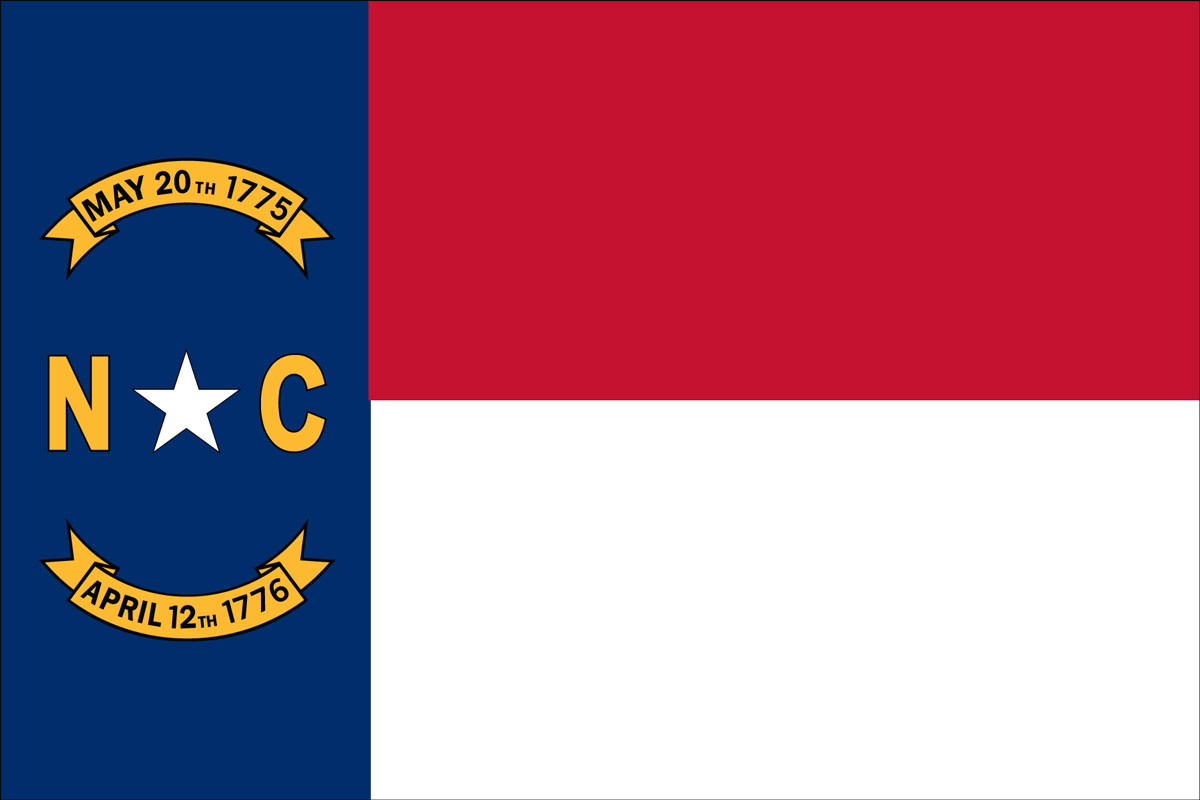
2018 Major Accomplishment – During this two-year budget cycle, our advocacy efforts resulted in rate increases in three Medicaid programs: Personal Care Services (PCS), Community Alternatives Program for Children (CAP-C) effective July 2018, and CAP for Disabled Adults (CAP-DA) effective January 2019.
Impact: This increase allows for us to continue to provide in-home aide services to 1,244 medically fragile children, disabled adults, and seniors across North Carolina who need care, and enables us to create jobs in the community while keeping families together in their homes.
2019 Major Goal 1 – The first major goal for the upcoming two-year budget cycle is to secure a $5.40 increase for nursing under Medicaid’s Private Duty Nursing (PDN) Program.
Impact: This nursing increase will allow BAYADA to recognize our staff with better compensation across North Carolina and help us better hire and retain the compassionate, high-quality staff that our clients and their families deserve.
2019 Major Goal 2 – The second major goal for the upcoming two-year budget cycle is to secure a further $1.40 increase for aide services under Medicaid’s Personal Care Services (PCS) Program, the Community Alternatives Program for Disabled Adults (CAP-DA) and CAP for Children (CAP-C).
Impact: This aide increase will allow BAYADA to recognize our staff with better compensation across North Carolina and help us better hire and retain the compassionate, high-quality staff that our clients and their families deserve.
Pennsylvania
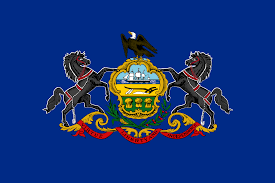
2018 Major Accomplishment – In Pennsylvania, our advocacy efforts led to the unanimous passage of the Hospice Drug Disposal Bill, which was signed into law by Governor Tom Wolf in June.
Impact: This new law allows hospice and home health nurses to help families dispose of unused narcotics following a patient’s death or discharge. This is important to our Hospice employees because they felt that families needed help and support in disposing of unused drugs. The law shows that the home care industry is doing our part to curb the opioid epidemic in Pennsylvania.
2019 Major Goal 1: Secure a 10% increase for personal assistant services (PAS) for programs under the Office of Long Term Living (OLTL).
Impact: This will allow us to increase compensation for our home health aides and better recruit and retain the caregivers necessary to keep up with the demand in Pennsylvania.
2019 Major Goal 2: Pass legislation allowing for deemed eligibility within home care services.
Impact: This is landmark legislation which will help shift the balance from favoring institutions, such as nursing homes, which are currently allowed to deem a person eligible for Medicaid-based institutional care after a cursory review of their financial application. If passed, this would extend this practice to home care providers, which currently must conduct a full review of a person’s application before delivering services. Because a full review can take months, passage would help ensure seniors will have access to home care when they need it and will help divert individuals from the costlier option of institutions.
Rhode Island

2018 Major Accomplishment – In Rhode Island, our advocacy efforts helped secure two rounds of Medicaid increases, which range from 10% to 70% for home care services delivered by CNAs, LPNs, and RNs. This landmark increase includes the first-in-the-nation annual Cost of Living adjustment (COLa), which will provide additional increases to those rates every year based on the Bureau of Labor Statistics’ Cost of Medical Services annual adjustment.
Impact: As a result of these significant increases, BAYADA and other home care providers can increase nurses’ and CNAs’ wages and better compete for a larger segment of Rhode Island’s workforce. We anticipate that better recruitment and retention will also result in increased access for Rhode Islanders who are currently authorized for home care services but are experiencing missed shifts or cannot find the adequate number of caregivers they need to remain safe at home.
2019 Major Goal 1 – In Rhode Island we are seeking to secure a 10% high-acuity skilled nursing modifier rate for RNs and LPNs in all Medicaid-contracted home care services provided to tracheostomy/ventilated clients.
Impact: This rate differential will ensure that nurses who receive specialized training to care for clients with tracheotomies and ventilators receive a higher pay rate. This will enable BAYADA to better recruit and retain these specially trained nurses and thus ensure the continuity of care for these medically-fragile clients.
2019 Major Goal 2 – Our second 2019 goal is to collaborate with industry partners to submit legislation ensuring the Medicaid Home Care/Hospice COLa is included in the SFY 2020 budget.
Impact: Many states’ reimbursement rates have stagnated and have not been addressed for decades. Obtaining a COLa will protect Medicaid reimbursement rates from falling behind the cost of living and ensure that Rhode Island’s rates do not stagnate as they have elsewhere. This will better ensure we can compete with other health care settings to have the caregivers necessary to meet the demand.
South Carolina

2018 Major Accomplishment – 2018 was the first year that South Carolina saw a full-time GAO presence. Our advocacy efforts secured us an average 10.5% rate increase for all personal care Medicaid waiver services.
Impact: The in-home personal care rate increases brought the personal care (PC) rate up 8.%, the enhanced personal care (EPC) and adult attendant care (ATDC) rates up 8.2%, and the respite care (RC) rate up 17.25%, each effective July 2018. This allows BAYADA to provide aide services to vulnerable South Carolinians across the state and enables us to keep families together at home.
2019 Major Goal – In 2019, our major goal in South Carolina is to secure a 24% increase for RN services within the Medicaid nursing waiver program and a 36% increase for LPN services within the same program.
Impact: Currently, home care providers can currently only compete for approximately 10% of RNs and 25% of LPNs in the state. A successful increase for both RNs and LPNs would allow us to attract a greater share of available nurses in the state and serve more vulnerable South Carolinians in need of skilled nursing home care services.


